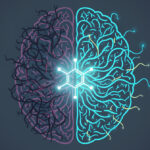Psychedelic therapy is a treatment option that combines the use of substances such as psilocybin or MDMA and therapy before, during, and after the session. Over the past five years, there have been significant regulatory advancements for psychedelic-assisted therapy. These include the Section 56 exemptions in 2020, Health Canada enabled access, and more.
In addition, studies have shown that such a treatment option can help with PTSD, treatment-resistant depression, and more, as it leads to plasticity, the development of new connections between neurons in the brain. While the field continues to grow, determining who can truly benefit from psychedelic-assisted therapy is essential, as it can help streamline treatments.
In this article, we’ll explore the core use cases of psychedelic-assisted therapy, who can benefit from it, and how to determine if it’s right for you. Let’s begin!
Core Uses Of Psychedelic-Assisted Therapy
As far as the core uses are concerned, psychedelic-assisted therapy may help ease symptoms of depression. A research review noted that 65% of studies reported reduced anxiety with the use of psychedelic treatments. Participants of a different study reported significantly reduced levels of anxiety, depression, and stress.
In addition, the participants, after further analysis, showed greater compassion and were less concerned. Using psychedelic-assisted therapy can also benefit those suffering from treatment-resistant depression. In fact, a study was conducted a few years ago during which researchers gave 20 people with the most severe depression two doses of psilocybin.
The doses were kept seven days apart. After five weeks of the treatment, significant reductions in the symptoms of treatment-resistant depression were noted. Nine out of twenty participants had responded to the treatment, and four participants reported remission of depressive symptoms for months.
Apart from depression, another core use of psychedelic-assisted therapy is that it can be used as a treatment option for PTSD. Although it has been noted that using psychedelics can help ease the effects of trauma, research studies offer mixed results. Systematic reviews of studies conducted on the effectiveness of Ketamine and MDMA have hinted at the fact that both these psychedelics are effective to some extent.
While Ketamine alone has a low rate of effectiveness on its own, that rate has been comparatively better when the psychedelic was used alongside psychotherapy. Apart from that, researchers have found moderate evidence supporting the effectiveness of MDMA.

Who Else Can Benefit From Psychedelic-Assisted Therapy?
While psychedelic-assisted therapy is mainly used for patients suffering from treatment-resistant depression and PTSD, it does have the potential to help those who experience:
1. Anxiety
Anxiety can be best defined as an emotional state triggered due to feelings of uneasiness, tension, apprehension, and worry that often occur due to a perceived threat. Statistics have shown that nearly 5% of the Canadian household population is diagnosed with anxiety. Common symptoms for such experiences include a racing heart, shaking, muscle tension, sleep problems, and more.
Studies have shown that psychedelic treatment options can help reduce the prevalence of these symptoms and increase self-perception and social functioning, as the treatment can break a fixed pattern of thinking, leading to anxiety.
2. Bipolar Disorder
A bipolar disorder is when one experiences severe mood and energy swings that can last for days or even weeks, impacting their ability to function in everyday life. In addition, it can also affect their relationships and work performance. Statistics from recent years show that around 5 million people in Canada meet the diagnostic criteria for bipolar disorder, along with other mental conditions.
Such individuals are likely to experience symptoms that include reckless and impulsive behavior, low sleep, rapid speech, and more. Research studies balancing both qualitative and quantitative findings suggest that psilocybin can be beneficial for those suffering from bipolar disorder.
3. ADHD
ADHD is a neurodevelopmental disorder which impacts how a person’s brain develops and functions. The impact of this medical condition is evident in areas related to attention and impulse control. Figures from official bodies suggest that around 1.8 million people in Canada are affected by ADHD. These individuals like to have trouble when it comes to following instructions, make careless mistakes, and find it hard to focus. Research suggests that microdosing psychedelics is a promising treatment option for ADHD.
4. Obsessive-Compulsive Disorder (OCD)
OCD refers to a state where individuals experience thoughts, urges, or mental images that are persistent, leading to severe distress and causing them to perform repetitive behaviour that can help reduce the perceived fear of an event. As per recent stats, 1 in 100 people in Canada aged 15 or older are likely to experience OCD and may demonstrate fear of contamination, repetitive handwashing, mental rituals, aggressive thoughts, and more. Psychedelics are emerging as a feasible treatment option for OCD, and initial research and data suggest that they’re safe and well-tolerated.
5. Is Psychedelic-Assisted Therapy Right For You?
Determining whether psychedelic-assisted therapy is right for you can be a difficult and highly impactful decision to make. Therefore, you should seek expert help when deciding whether to use psychedelic therapy or not. Apart from that, familiarizing yourself with the process of such a treatment can help streamline the decision-making process.
At Different Clinic, we do psychedelic-assisted therapy in five different stages that include consultation, screening, preparation, medication, and integration. We start with an initial consultation to determine your goals and address concerns. Then, we administer the psychedelic under therapist supervision. After that, we help you gather and understand all the insights from your trip.
Conclusion
Psychedelic-assisted therapy is not a one-size-fits-all solution, but it does offer hope to many. The potential for such a treatment option is growing as it can help ease the weight of treatment-resistant depression and help reframe trauma, anxiety, and even OCD. However, this treatment option isn’t just about taking a dose.
It’s about having the right dose, in the right environment, and with the right support. Like with all other options, it is essential that those seeking psychedelic treatments should consult medical experts, as it will help them make an informed and beneficial decision. Want to know whether psychedelic treatments are right for you? Contact us today!







Leave a Reply